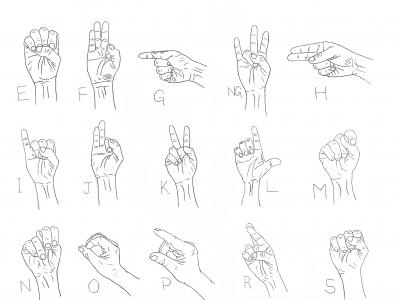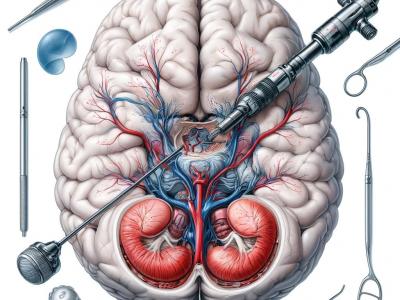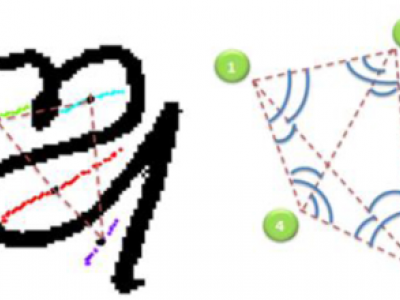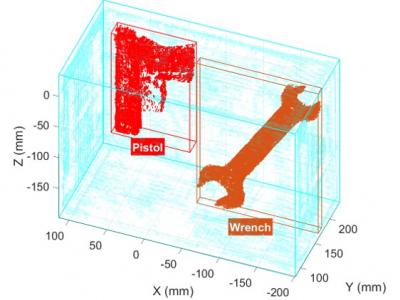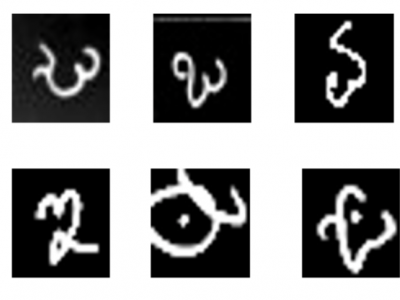Image Processing
In today’s world, deaf and mute person face many problems in their daily life due to miscommunication as well as misunderstanding. These problems have existed since long ago but are ultimately being solved with the introduction of Hand sign language. There exist many different sign languages such as ASL, ISL, etc. But for regional and low-resource languages like Mizo, the state language of Mizoram, spoken by the northeastern people in India, not much research has been done on the advancement of sign language based on the Mizo language.
- Categories:
 389 Views
389 ViewsIn today’s world, deaf and mute person face many problems in their daily life due to miscommunication as well as misunderstanding. These problems have existed since long ago but are ultimately being solved with the introduction of Hand sign language. There exist many different sign languages such as ASL, ISL, etc. But for regional and low-resource languages like Mizo, the state language of Mizoram, spoken by the northeastern people in India, not much research has been done on the advancement of sign language based on the Mizo language.
- Categories:
 175 Views
175 ViewsThis dataset consists of 462 field of views of Giemsa(dye)-stained and field(dye)-stained thin blood smear images acquired using an iPhone 10 mobile phone with a 12MP camera. The phone was attached to an Olympus microscope with 1000× objective lens. Half of the acquired images are red blood cells with a normal morphology and the other half have a Rouleaux formation morphology.
- Categories:
 1016 Views
1016 ViewsThis dataset comprises 1718 annotated images extracted from 29 video clips recorded during Endoscopic Third Ventriculostomy (ETV) procedures, each captured at a frame rate of 25 FPS. Out of these images, 1645 are allocated for the training set, while the remainder is designated for the testing set. The images contain a total of 4013 anatomical or intracranial structures, annotated with bounding boxes and class names for each structure. Additionally, there are at least three language descriptions of varying technicality levels provided for each structure.
- Categories:
 418 Views
418 Views
Human facial data hold tremendous potential to address a variety of classification problems, including face recognition, age estimation, gender identification, emotion analysis, and race classification. However, recent privacy regulations, such as the EU General Data Protection Regulation, have restricted the ways in which human images may be collected and used for research.
- Categories:
 399 Views
399 ViewsOdia is a classical and popular language in the Indian subcontinent used by more than 50 million people. In spite of its rich history, popularity and usefulness, not much research efforts have been made to achieve high level accuracy in case of Odia OCR. New handwritten alphanumeric character and numeral datasets for Odia are created by our research group@iitbbs and reported here in order to address the paucity of benchmark Odia datasets.
- Categories:
 351 Views
351 ViewsThis is the pest image dataset. With this data set at hand, scientists or software engineers may create programs capable of recognizing when creatures harm farm produce. This breadth extends not only across different plants but also covers many types of bugs like aphids, leafhoppers, beetles , caterpillars etcetera providing a large diverse pool from which one can train models designed to detect pests. Arranging photos by pest species makes it easy for people looking into them understand what they should expect find.
- Categories:
 2095 Views
2095 ViewsThe second set of concealed objects are the pistol and the wrench. The position of the wrench is on the top layer, and the pistol is on the bottom layer. The light blue part is the perimeter of the cardboard box, the red part is the pistol, and the orange part is the wrench. The results of object classification, where the concealed objects are boxed, and the object classification outcomes are displayed beneath the box, all of which are correctly classified.
- Categories:
 104 Views
104 ViewsThe reconstruction results from four-sided scanning using our previously developed MMW point cloud reconstruction algorithm are illustrated. The light blue part is the perimeter of the cardboard box, the pink part is the scissors, the dark blue part is the knife, and the red part is the hammer. The results show that even though the objects overlap each other, the reconstruction results of four-sided scanning can still get the rough outline of each object, which is unachievable with 2D imaging.
- Categories:
 73 Views
73 ViewsOne of the Dravidian language spoken majorly by 60 million people in and around Karnataka state of India is known as Kannada. It is one among 22 scheduled languages of India. Kannada langauge is written in Kannada scriptwhich has its traces back from kadamba script (325-550 AD). There are many languages which were used centuries back and aren’t being used currently whereas Kannada is one such language which is used even today for writing official documents and are being taught at schools which means it is going to be for many years.
- Categories:
 244 Views
244 Views